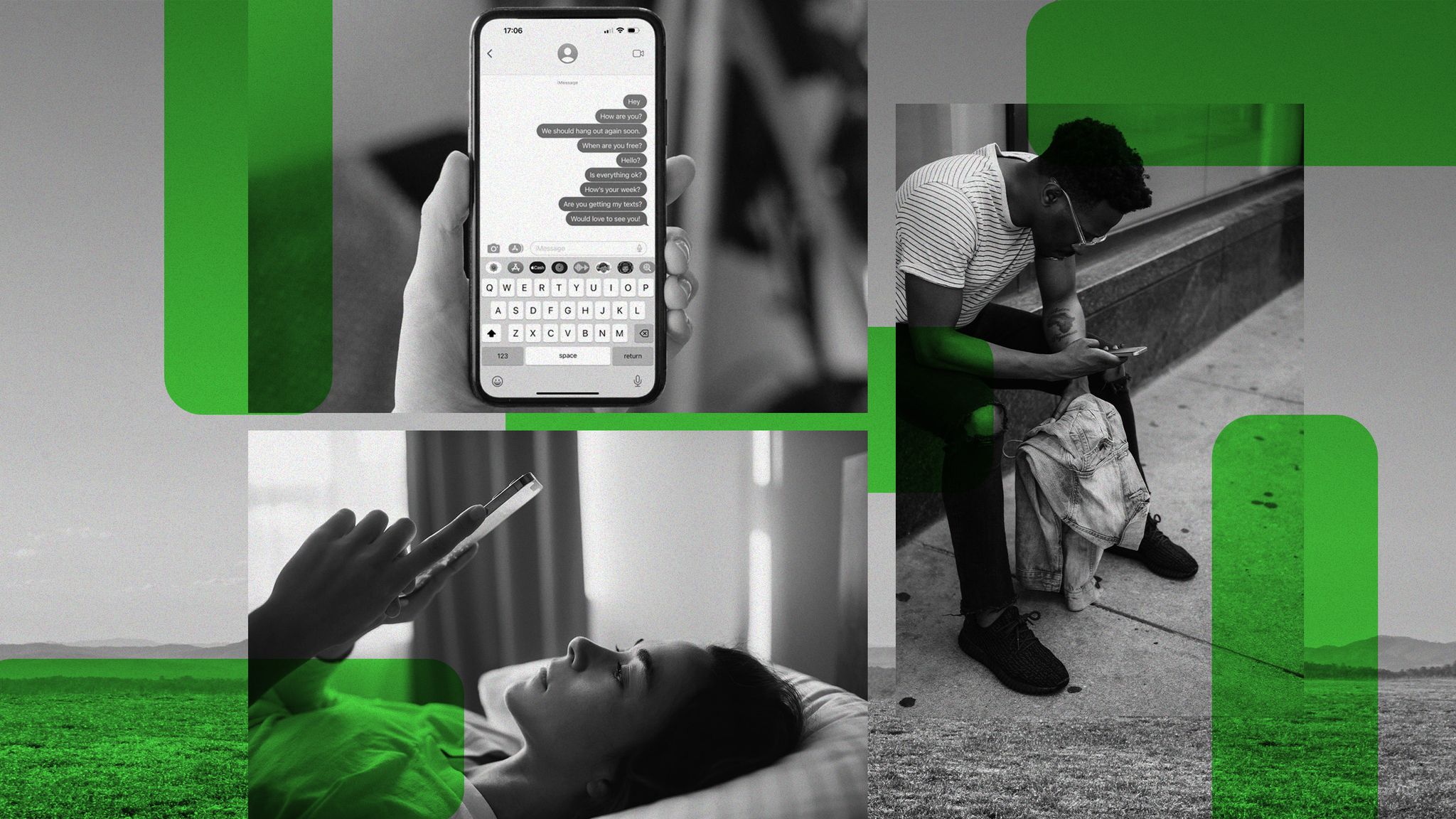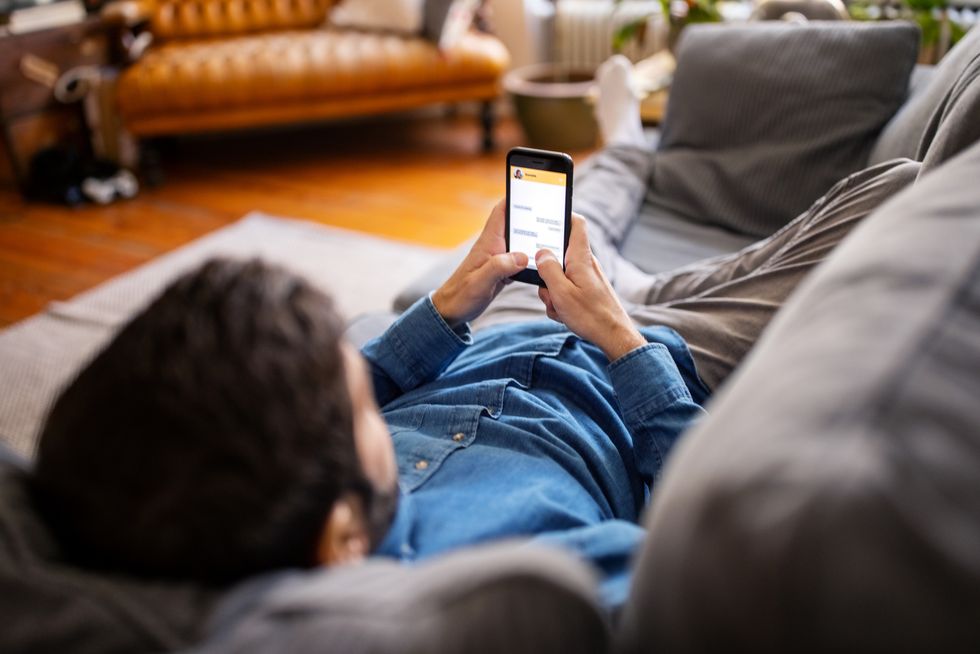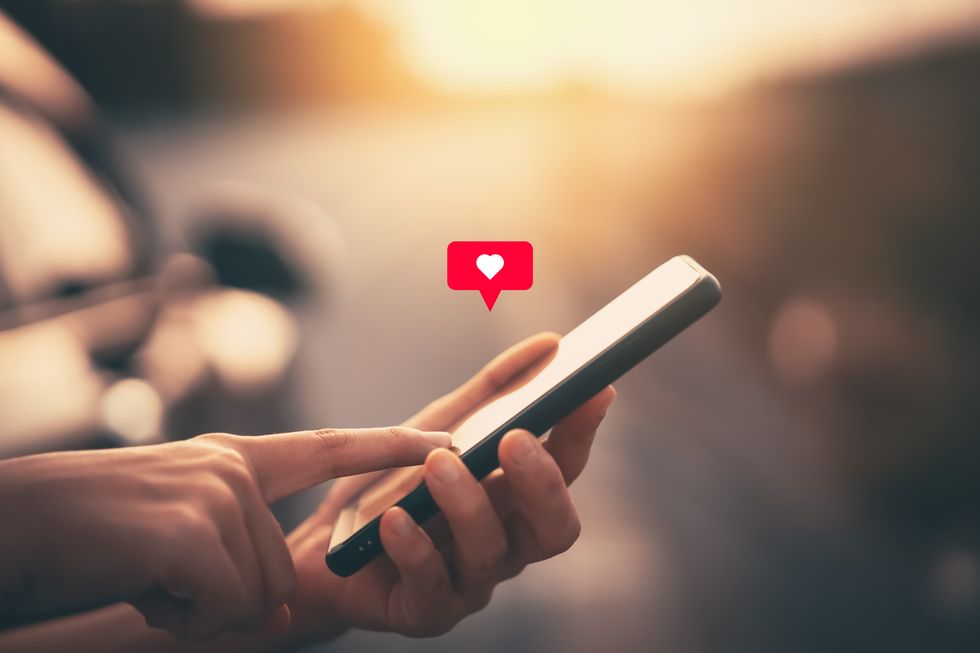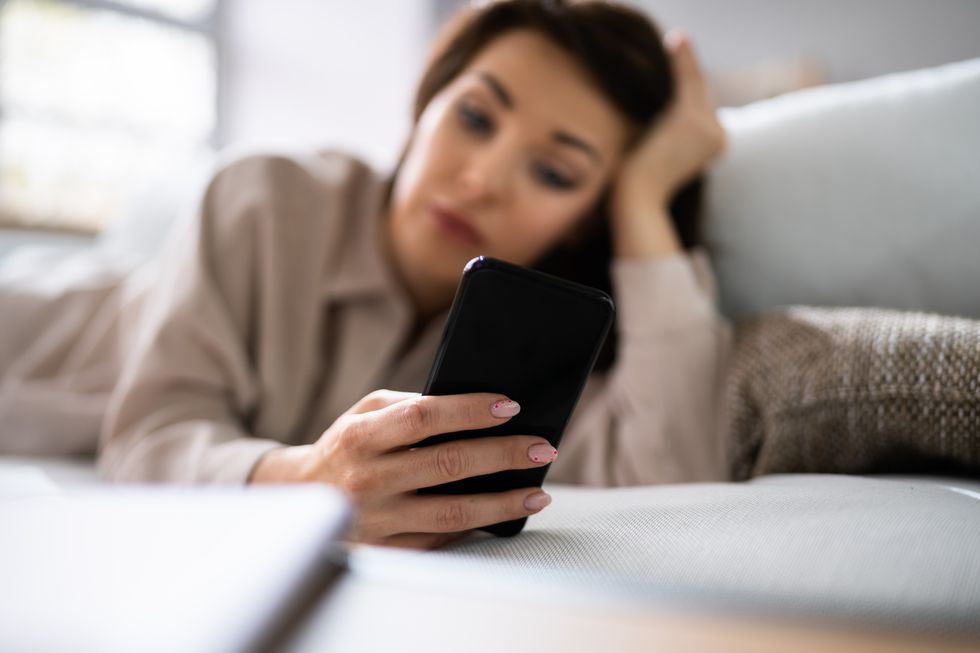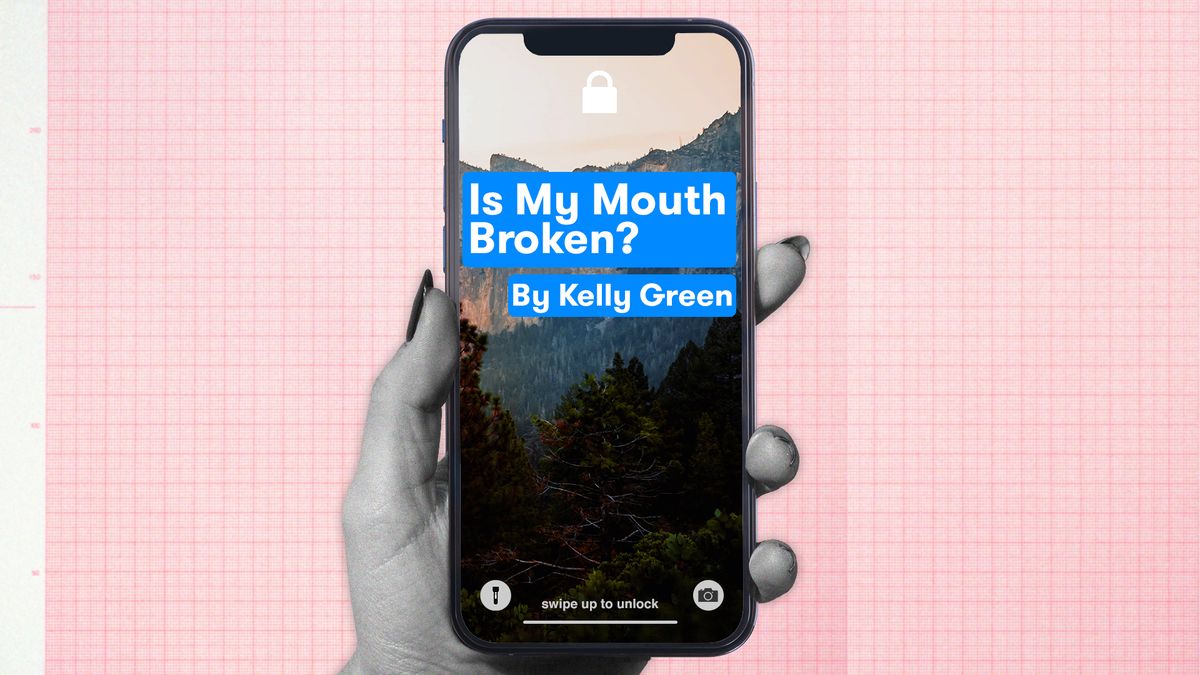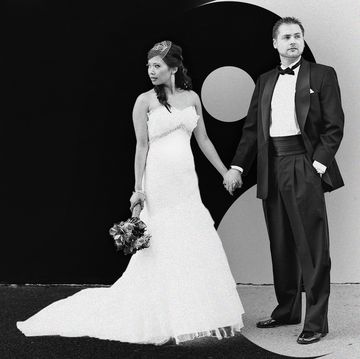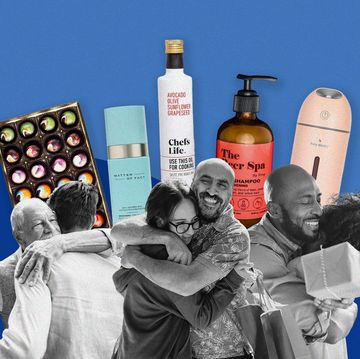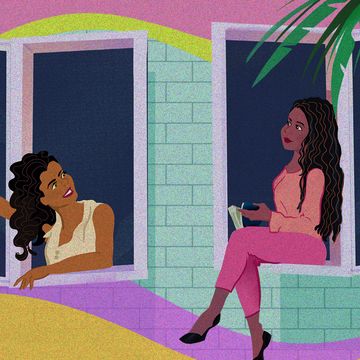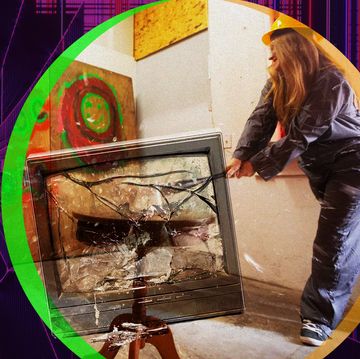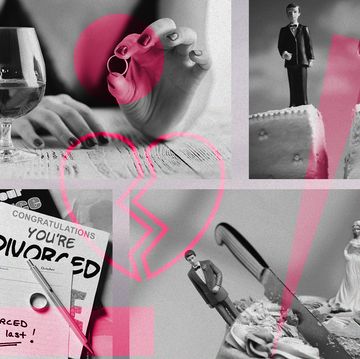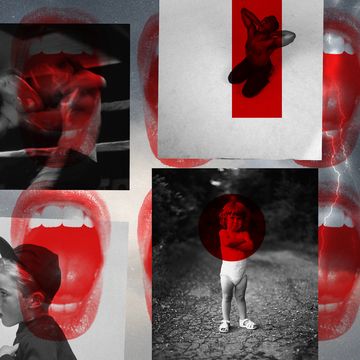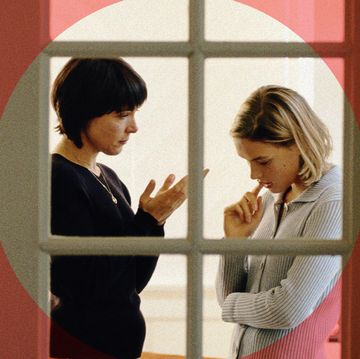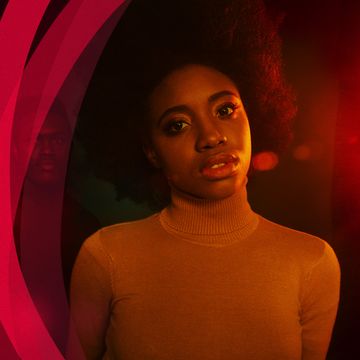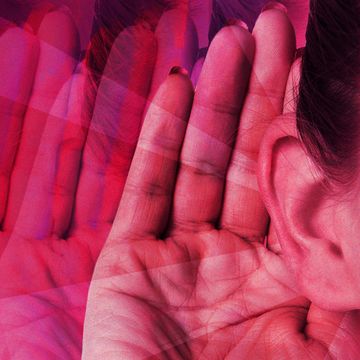In the Shondaland series The Magic of Moving Forward, we’re bringing you forward-thinking stories that illustrate how moving on from something is a way to level up. From women finding joy by throwing themselves divorce parties to vulnerable tales about entering new friendships and relationships, to discovering pleasure in life after giving up a bad habit — there’s no one way to flip the page and find happiness all over again.
I got ghosted on Halloween weekend (when I took notice of the date, I couldn’t help but laugh). Ghosting, of course, is when somebody — typically a romantic partner but also maybe a friend — just vanishes from your life. Poof! No more calls, texts, likes on your pages — just gone. There’s been a lot of debate on social media lately about when it’s okay to ghost -- you’re escaping from abuse is one scenario. Some also argue that ghosting is okay after one or two dates.
This guy — let’s call him David — and I had been seeing each other for about three months. I helped him move. He picked me up from LAX when I got back from vacation overseas, which in Los Angeles is almost as meaningful as meeting someone’s parents. We talked every day and saw each other twice a week at least. We made future plans. Feelings were developing. Then one day, just before Halloween, he vaporized like a poltergeist.
Obviously, it sucked. I went through normal phases: anger, confusion, shock, curiosity, self-doubt, replaying our last exchanges over and over in my head. I fantasized about going to his place to demand an explanation; I searched the internet for clues. It hurt for a number of reasons but especially since there wasn’t any closure. I’m a (mostly) rational, self-aware person. I can take criticism without getting defensive or angry or dismissive, which is what made his disappearance all the more puzzling and frustrating. We’re in our 40s; why couldn’t he just say he didn’t want to continue?
I wondered if he’d been in an accident or had some major crisis but soon realized that unless he’d lost all his fingers and the ability to speak, he could’ve said goodbye. Like nearly everyone who’s encountered this situation, I got over it eventually. But the way I got over it will likely be a technique I can use again. I had been spinning in search of closure, but one day, literally out of the blue, I had a thought: I could give closure to myself.
Ghosting is about fear and avoidance
Ghosting, at its core, is about fear. The ghoster doesn’t want to have the mature, difficult, but ultimately respectful and adult conversation about the problems in the relationship, or say they want to end it. Walking away, after all, is much easier than potentially hurting someone with a breakup, which is by definition uncomfortable. Yet ghosting is increasingly common. Quantitative estimates vary, but the conventional wisdom is that somewhere between 11 to 25 percent of people have been ghosted, although a whopping 80 percent of millennials have been ghosted, according to a study by the dating site Plenty of Fish.
There are all kinds of reasons why people choose this cowardly way out. (Although again, if you’re dealing with someone who’s emotionally, verbally, or physically abusive, cutting off communication is not only okay, experts say, but also wise because you owe an abusive person nothing, and anything you say to them will be weaponized.) One reason romantic ghosting has become so common is because of dating apps. Before them, back when we met potential partners in spaces that we frequented or through friends, ghosting was less frequent and harder to do because we were linked through other people or a specific place: a university, a church, an office, etc.
Online dating, a more popular way of meeting people today, means meeting total strangers: people who can present as a person who has similar values as you but may actually not. All relationships are a gamble; they’re inherently risky and rife with potential for hurt. Meeting people on apps can be even riskier, not just in terms of physical safety, but emotionally too. If you have no mutual acquaintances, no identical shared space (like a gym or a book club), and your partner doesn’t have social media, there is always the chance that if your partner chooses to evaporate without explanation, there’d be few ways to confront them.
David and I met on Tinder, one of the most popular dating apps and the one that has the worst reputation for attracting game-players and charlatans — a fact I’m mildly ashamed to admit I didn’t know until after this happened.
It wasn’t just the ghosting that was so bewildering but also the fact that up until then, everything seemed fine. No — better than fine. Before meeting him, I’d made a list of the attributes I wanted in a partner. I took to meditating about this unrealized companion and in still moments, I would sometimes “see” traits, in a flash. This person would probably be a Taurus. He moved here from the East Coast, “I heard” one time as I sat on the floor, breathing deeply with my eyes closed.
Once, as I was visualizing this person I hadn’t met yet, I saw two pugs or French bulldogs, something I thought then was super-random. When David and I first started chatting, I was struck by how much we had in common, and as details trickled out, I thought they were too uncanny to be mere coincidences. He was a Taurus. He’d moved here from the East Coast. One day, he told me he was going out to walk the dogs. “What kind of dogs do you have?” I asked. He sent me a pic of French bulldogs.
It felt like synchronicity. On our third or fourth date, by which point we talked daily, we went to a private club. After a big brunch, we canoodled on a couch in the parlor area. Our server asked, “Are you guys a couple?” We looked at each other, genuinely unsure how to answer. Kind of? Probably headed in that direction? She said she had a background in reading energy. “Have you heard of a twin flame?” she asked us. I hadn’t but intuited what she meant. “You guys look like twin flames. I can literally see the energy bouncing off of you.”
Months went by. For the most part, they were ordinary. While he was a little mysterious, I didn’t sense any red flags. He had no social media at all, and despite having a six-figure job, he once called me as he was driving an Uber to make cash. “Eh,” I thought, “it’s L.A.; everyone needs a couple of hustles to afford to live here.”
In late October, I got busy with work and had to reschedule at least two planned date nights. One Friday, we were texting, and I said, “I’m looking forward to seeing you this weekend,” and he didn’t respond. I didn’t think anything of it until hours later, when I texted, “I rode my bike again for the first time since my accident,” and he replied back with hearts. It seemed unusual, and frankly a little unsettling, that he’d have no comment about hanging out when we’d been doing so consistently for the past several weeks, but commented about me riding my bike. I wanted clarity, so when we talked later, I asked for it. “Are we good? Is everything okay?” I queried. He asked why I asked that, and I referenced the above; I explained that if there was an issue, I’d rather talk about it than not, and if he felt like this situation wasn’t working anymore, he could say so. “Would you like to continue seeing each other?” I asked. “Yes, of course,” he said. He apologized for the gap in communication. He promised to do better. We hung up, and I never heard from him again.
I texted the following day, Saturday; I got no response. I didn’t even think that silence was significant: He could be sleeping, I reasoned, or perhaps he needed downtime. By Sunday evening, I was in a jumbled state of anxiety, confusion, and anger. I had just asked this man directly, and he gave no indication of dissatisfaction at all.
By Monday, I knew the silence was intentional, and when I saw his Tinder profile was three miles away (he was at home, basically), I’d had enough. Whatever the explanation was, it wouldn’t be enough for me, and I texted him about my disappointment, with a brief and respectful goodbye.
Friends tried to comfort me with all kinds of rationales: He might’ve felt you were too good for him, maybe he relapsed, and so on. For a minute, my confidence took a hit; I must’ve done something, been too much, or something. As the subsequent weeks rolled on, emotions gave way to logic. Even if I had done something, we should have been able to talk about it. That’s how healthy relationships work. It doesn’t matter what I did, or didn’t: This person could not be direct with me, which is not a trait I want in a partner.
I don’t know if the visualizations and meditations were “wrong,” and it doesn’t matter.
What mattered is that I conducted myself with integrity and had the maturity and courage to ask for clarity rather than play games.
What you can give back to yourself — power and freedom
Most importantly, when I had to push through the hurt of wanting some closure or answers, I finally realized that closure could come at any time I wanted it; I didn’t need him to give that to me. I probably wouldn’t get it from him anyway. The closure would come when I said it was closed, and that was that. Unbeknownst to me then, that is exactly how therapists and dating coaches say you should look at a situation where someone isn’t giving you the information you need to move on. Really, it’s the only option. Because the alternative is wallowing in self-pity or fury or other types of hurt that keep you locked in pain. Leaving closure up to the other person robs you of your own power.
We don’t always get to choose what happens to us. We can, however, choose what to do with our feelings, and when I decided to give myself the closure I was looking for, I moved back toward peace and empowerment and happiness — feelings you can always reach for when you want to. Whatever happened to that guy is no longer my concern or interest. I have no feelings about him in any capacity whatsoever. Because, really, how could you be mad at a ghost?
Malcolm Venable is a Senior Staff Writer at Shondaland. Follow him on Twitter @malcolmvenable.
Get Shondaland directly in your inbox: SUBSCRIBE TODAY
